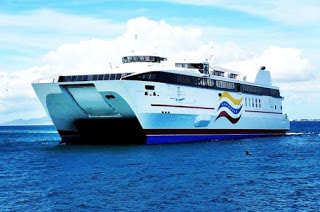 Can you think of an innovation that looks very promising, especially because so many others have started using it? Can you recall any such innovations that have been disappointing? In consumer markets, cold-press juicers have spread widely and have been marketed by their positive health effects, but there is now evidence that they do more harm than good. Their sales are slowing. In business markets, airlines have long known that larger airplanes were better, and were lining up to buy the giant Airbus 380 and the slightly smaller Boeing 747-8, but they stopped after realizing that the new generation wide-body aircraft were more economical. There are many cases like this, including worse mistakes than these two. This raises the question of how firms can quickly understand that a new innovation will disappoint, and can stop themselves from adopting it. This was a question I examined in a paper in Strategic Management Journal on the fast ferry innovation, which was briefly popular but soon proved to be a very specialized type of ship. The problem with fast ferries is that they were too fast and too heavy (they carry cars as well as people). Making such a combination go fast is a significant engineering feat, but it is also very expensive, and few routes can charge high enough ticket prices to make it profitable. Shouldn’t this have been easy to discover? Not really. Fuel prices fluctuate, and maintenance costs are hard to estimate in advance. It is a lot easier to make the cost calculation after buying and operating a ferry (or a few ferries), but then it is too late. Still, the shipping firms learnt how specialized fast ferries were, and it took “only” about five years for this knowledge to spread. Importantly, the shipping firms learnt from each other. Here is how it happened. Each firm that started using fast ferries accumulated experience with the costs, and this experience must have leaked. We know this because sales of fast ferries made additional sales to nearby shipping firms less likely. Some firms gave up on their fast ferries and sold them in the second-hand market (at a discount, of course), and this also made additional sales less likely. Resales seem like even stronger reason not to buy, but actually the effect of giving up was about the same as the effect of using a fast ferry. Firms learn from the high costs just as much as they learn from resales. This is a natural finding except for one important detail. If a firm is operating an expensive piece of equipment with disappointing results, it will soon be clear that selling it is the best option. But, in order to sell it without losing too much money, it is important that the costs are kept hidden. This means that the information about the high costs must have leaked from the shipping firms using fast ferries despite their best efforts to keep them hidden. Inter-organizational learning is hard to stop. Firms learn from the mistakes of other firms, even the mistakes that they try to keep hidden! Greve, H.R. 2011. Fast and expensive: the diffusion of a disappointing innovation. Strategic Management Journal, 32(9): 949-968. Comments are closed.
|
Blog's objectiveThis blog is devoted to discussions of how events in the news illustrate organizational research and can be explained by organizational theory. It is only updated when I have time to spare. Archives
May 2024
Categories |
 RSS Feed
RSS Feed